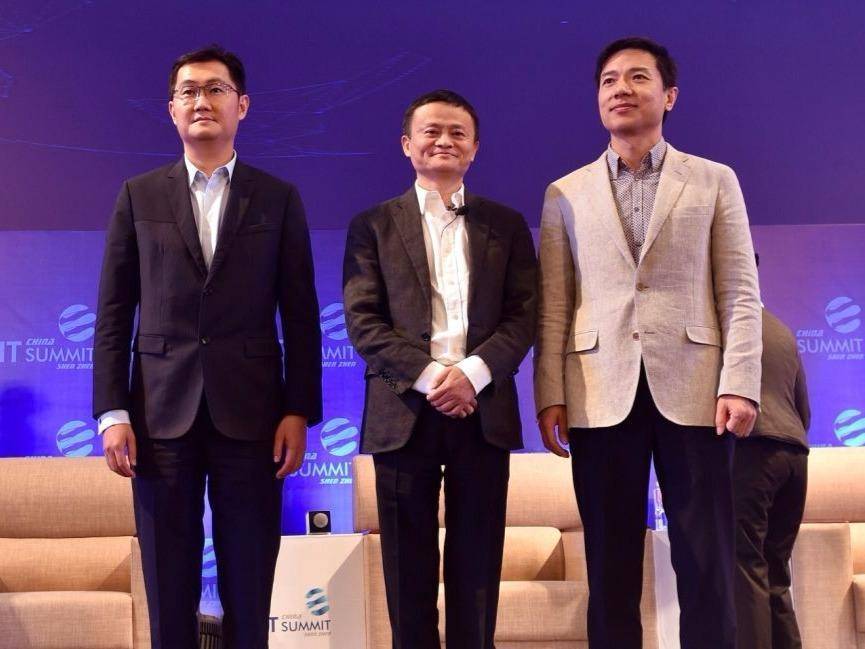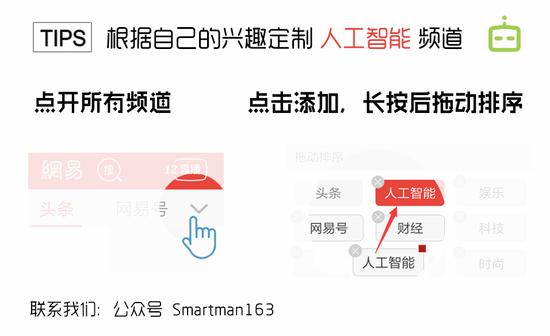(Original title: Ma Huateng said Baidu artificial intelligence is leading, is it modesty or polite?)

An "ABC" has opened the curtain of intelligent war among several major cloud giants in China.
The ABC mentioned here is not a "banana man" but refers to artificial intelligence (AI), big data (BD) and cloud computing (Cloud).
There is a consensus in the industry that the basis of artificial intelligence is cloud computing and big data. Therefore, ABC is inseparable three pillars. Some people say that ABC is the 2.0 phase of public cloud. After the three are merged, the public cloud begins to be fully intelligent.
Just yesterday, Amazon founder Bezos emphasized in an open letter to shareholders that the company fully embraces AI. This is the latest expression of the world’s public cloud bosses on artificial intelligence, and it also allows us to confirm the “ABC†trend.
The domestic cloud computing, especially the head enterprises in the public cloud area, seems to have concentrated on "ABC" recently. A subtle scene appeared two weeks ago: BAT's Big Three was rarely framed at the IT Leaders Summit in Shenzhen, and the first time there was an exchange on the AI ​​topic.
When talking about the business development of artificial intelligence, Ma Huateng said, "Compared to Baidu, Tencent has fallen behind artificial intelligence." Ma Huateng really think so? Is this modest, or is he shooting in front of a competitor?
Artificial intelligence running, if only talking about algorithms, training, from the cloud computing support, the supply of big data, how intelligent and decision-making? When the ABC three letters are written together, the competition for artificial intelligence depends on the outcome of the three runways. Artificial intelligence technology R & D, perhaps Baidu early Tencent, and cloud computing is Ali as early as Baidu five or six years ... ... now it is difficult to say after ABC integration, who is the ultimate winner.
In Ma Huateng's phrase, you only paid attention to the first part of the sentence and ignored the true meaning in the latter part of the sentence.
Ma Huateng’s so-called backwardness refers to Baidu’s establishment of the Deep Learning Institute as early as July 2013. The driverless project also started in the same period. In the first half of 2016, Baidu made it clear that artificial intelligence should be established as the future development direction. . BAT three, Baidu in the field of artificial intelligence is indeed the earliest voice, the largest volume.
The speeches after Ma Huateng’s modesty are truly voices. “The development of artificial intelligence requires four elements: scenes, big data, computing power, and talent.†Yes, the scene is mentioned first. Artificial intelligence without application scenarios is like a castle in the air; artificial intelligence without cloud and big data support is tantamount to “rogueâ€.
On the same day, Ma Yun, who spoke on the same platform for a long time and talked about machine intelligence for a long time, was perhaps even more smug. In the eyes of the outside world, Ali began to increase the volume of artificial intelligence after releasing ET in August last year. Some people think that Ali's artificial intelligence is relatively late, but to understand and tell you, this is definitely one of the biggest misunderstandings. When Ma Yun spoke of Alphago at the scene, the language was surprising: “so TM what?†because, for Ali, AI has long played an important role in his own business. In addition, Ali currently has success stories in various fields such as O2O, transportation, industry, and medical care.
Did Baidu sound early and have a large amount of voice, ahead of artificial intelligence in Tencent and Ali? Absolutely not! It is not only A that fights now, but B and C too!
In Ma Yun’s view, the next 20 years are to let the data speak. “I started to talk about the DT era about three or four years ago. In the IT era, everything is to strengthen themselves, and the DT era is to strengthen others, empower others, and make others. More and more powerful, this is the DT era."
For any entrepreneur, if you have Tmall and Taobao, Aliyun, there are a series of ecological companies such as payment and travel platforms, talking about artificial intelligence will be as full of confidence as Jack Ma. In fact, the two clouds of Alibaba and Tencent did have a “difficult to describe†emboldenedness when players in the industry saw the integration of “ABC†as a trend.
Seven years ago, they had a completely different view of the cloud, and the distance has slowly been lifted since then.
It is also the Shenzhen IT Leaders Summit. Time is back seven years ago. In 2010, Ma Yun, Ma Huateng and Li Yanhong were the first to discuss the future development of cloud computing. At that time, Google proposed the concept and theory of “cloud†for more than three years, and the famous definition of cloud computing of the National Institute of Standards and Technology (NIST) was just released. In the face of this new thing, Robin Li said that cloud computing is a new bottle of old wine (Baidu is pushing box calculations). Making money with cloud computing will be more tiring; Ma Huateng thinks that it is too early to do cloud computing; and Ma Yun points out that cloud computing is A data sharing mechanism, if Ali does not do cloud computing, will die in the future.
The attitude of that time decided that BAT's status in the field of cloud computing is now the status of rivers and lakes. After more than seven years of polishing, Alibaba Cloud has already led the domestic market and has entered the first camp in the world. It is qualified to compete with Amazon AWS and Microsoft Azure on the same stage.
Tencent Cloud was a few years later. In September 2013, Tencent Cloud was officially open to society for three years before it was officially opened. It can be called the basic stage.
From 2014 to 2016, Tencent Cloud gradually began to build a cloud computing ecosystem, and the cooperation with Didi also allowed the industry to focus on the impact of its public cloud market. At present, Tencent's cloud is large, but it has some limitations. The game cloud is its single largest industry.
Baidu did not formally propose to enter the public cloud market until July 2016. At this time in the domestic market, Alibaba Cloud had already led the way. Tencent Cloud followed closely. Jinshan Cloud, which Lei Jun was trying hard to build, also came out on the rise. Li Yanhong also admitted that he thought that the cloud market was too simple two or three years ago. It was technically a dirty and hard job. However, the market situation has changed in the past two or three years.
Originally formed the BAT tripartite pattern in the Internet industry, but in the public cloud market Baidu was squeezed out of the top three to form the KAT format (K is Kingsoft, Kingsoft). This makes Baidu feel like it is starting to search, the original chance to become the biggest winner of cloud computing?
Cloud service providers sing AI drama, what new games can be played? ABC fusion determines comprehensive competitiveness!
The top three in the public cloud domain—Ali, Tencent, and Jinshan—come in unison with artificial intelligence. They rarely mention elastic computing, on-demand billing, Hadoop, Spark, and more often, AI, deep learning, and machine learning become high-frequency words. On March 29, Ali Yunyun’s president Hu Xiaoming explained the layout of Alibaba Cloud’s artificial intelligence, but there are three core explosion points: the ET medical brain, the ET industrial brain, and the machine learning platform PAI2.0.
At present, the head camp of public cloud in China has gradually become clear. According to estimates by agencies such as IDC and Goldman Sachs, in 2016, the public cloud market in China was around 15 billion yuan, of which Alibaba Cloud accounted for nearly 40% (2016 revenue of 5.566 billion yuan).
Although Tencent Cloud began to mention cloud service related content from the second fiscal quarter of 2016, it is expected to be around RMB 1-2 billion according to the analysis of the overall 2016 financial report. Regarding the development of Tencent Cloud in the future, Ma Huateng gave an early conclusion: "In the future, the core of Internet technology in traditional industries is to use artificial intelligence in the cloud to handle big data." Tencent Cloud AI's layout article was described from the beginning. Despite the fact that it still has a big gap with Alibaba Cloud, Tencent, with its industry applications and massive data resources, should not be underestimated.
While giants such as Ali and Tencent have made AI efforts at the same time, Jinshan Yun has also laid a profound "ambush" in this area. Not only did it carry out research and practice related to artificial intelligence very early, such as helping Xiaomi's mobile phone album to realize human faces. Identify classifications and implement support for artificial intelligence from the system architecture level. On April 11th, Jinshan Cloud and Intel jointly launched KMR, a data analysis solution, and expressed a clear signal to AI.
In the era of public cloud 2.0, the three pillars of ABC are indispensable. If we only study the core technologies of artificial intelligence without the support of big data and cloud computing, artificial intelligence cannot realize true value. With public clouds and big data, there is an opportunity to make artificial intelligence as soon as possible and accelerate landing.
 燑br>
燑br>
SHENZHEN CHONDEKUAI TECHNOLOGY CO.LTD , https://www.siheyidz.com
